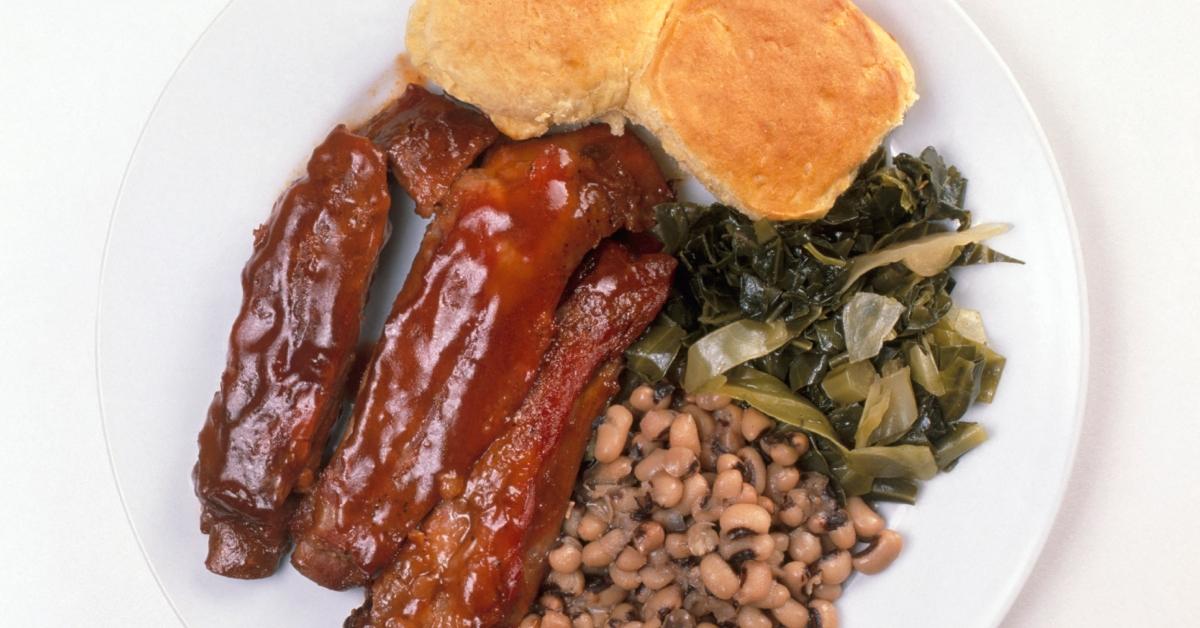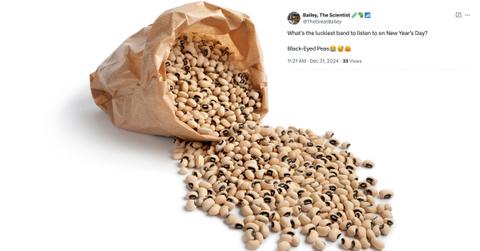Why Do People Eat Black-Eyed Peas on New Years? Inside the Black American Tradition
A common belief is that the tradition was created the emancipation as ordered by President Abraham Lincoln on New Year’s Day.
Published Dec. 31 2024, 1:22 p.m. ET
The beginning of a new year can be a challenging time for many. Some use the time between Christmas and the New Year to prepare for it with vision boards, parties, or a chill night at home with a comfort TV show. Others utilize those tools and remain true to their traditions.
Every year during New Year's, my mom and stepdad would prepare a feast to ring the celebration in. Pork and cornbread was always on the menu, as well as collard greens and black-eyed peas.
The latter was and still isn't something my palate preferred, though I've always known its cultural significance. However, if you've ever wondered why black-eyed peas are impossible to find between Dec. 30 and Jan. 1, you've come to the right place.
Let's break down why people eat black-eyed peas on New Year's.

Why do people eat black eyed peas on New Years?
As I mentioned, black-eyed peas have long been a tradition in my family. Having black-eyed peas during the holiday is something most African American households do and stems from African American culture and history. In a Food Network post, writer Alexandra Foster shared that historian and food scholar Adrian Miller stated that food represents coins and wealth, resulting in prosperity for the new year.
The tradition also calls for collard greens, which represent paper money, and cornbread, which means the people eating it want to attract gold. Many believe the best way to attract abundance through black-eyed peas is to eat 365 peas. Talk about a mouthful!
Black-eyed peas, as an African American tradition, have various origin stories. Some believe the tradition came during the Civil War when Northern troops would give it to enslaved Black people because they no longer wanted the food and felt it wasn't suitable enough for even animals to eat.
According to Oliver's Market, the troops reportedly gave the food as scraps to the Southern slaves, which they made to celebrate emancipation as ordered by President Abraham Lincoln on New Year’s Day, January 1, 1863. After the war, black-eyed peas were known to only be eaten on the first of January. Over the years, though, some have "lost the recipe" of honoring the tradition.
Black-eyed peas are reserved for New Year's Day, not New Year's Eve.
While black-eyed peas are a great way to manifest new wealth into your household, the ritual is moot if you don't honor it correctly. Over the years, some people have shared on X (formerly Twitter) and other apps that they enjoy eating black-eyed peas on New Year's Day and not New Year's Eve. Unfortunately, getting a head start on your good luck won't make it happen, as the tradition calls for eating the dish on Jan. 1.
So, if you're considering spending your NYE over a stove, please don't. Instead, take X user @alamanecer's approach and soak the black-eyed peas during your NYE events. The user suggests soaking your black-eyed peas for 8-10 hours before you go out or even after the festivities are over. That way, the peas are ready to cook and eat on New Year's Day. You're welcome!
